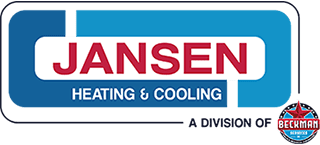With Inflation Reduction Act Incentives, Now is a Great Time to Consider a Heat Pump

The Inflation Reduction Act, signed into law on August 16, 2022, incentivizes homeowners to install high-efficiency heating, cooling and water-heating equipment such as fuel-conserving furnaces, boilers and wood stoves.
The largest credits and rebates are available for heat pumps (high-efficiency systems that heat and cool homes in place of a furnace and air conditioner). When coupled with cleaner electricity sources, a heat pump can be a sustainable way to control indoor temperatures.
And while older heat pumps struggled in cold climates, many of the newest models can work well even in low winter temperatures.
Consumer Reports has found that heat pumps can be less expensive to run than other heating systems over the long term. In some parts of the country, they cost less to install than other HVAC systems.
These new incentives could make HVAC installation much more affordable.
Heat Pump Provisions in the Inflation Reduction Act
If you install a heat pump, you’ll be eligible for a federal tax credit for models that achieve the Consortium for Energy Efficiency’s (CEE) highest efficiency tier.
This tax credit is good for 30 percent of the total cost of your heat pump, including labor, up to $2,000. It is available through 2032.
Beyond the tax incentive, you also could be eligible for:
- up to $1,750 for a heat pump water heater and
- $8,000 for a heat pump for space heating and cooling.
Both incentives would be in the form of a state-administered rebate.
Who Qualifies for a Heat Pump Tax Credit or Rebate?
All taxpayers qualify for the federal tax credits.
The new incentives will apply to equipment installed on January 1, 2023 or later. (A smaller tax credit of up to $300 is available for heat pumps installed during 2022.)
The rebates depend on income. You must make less than 150 percent of your state’s medium income to get a rebate.
Tax Credits
You can also claim up to $1,200 in total tax credits per year on a wide range of expenditures related to certain efficiency upgrades, including for heat pumps. These include but are not limited to:
- $600 for air-sealing materials or systems
- $150 for a home energy audit
- $600 for upgrading your electrical supply if it’s required for efficiency projects—for example, in order to power an electric heat pump when you previously used natural gas to heat your home
Combining Initiatives
Several states (or utility companies within them) already have rebate programs for efficiency upgrades. Whether you will be able to combine the new rebates with existing programs is unclear, and there’s much that’s yet to be determined.
As long as your state’s existing rebate program does not rely on federal funding, then theoretically you could combine both rebates, according to David Smedick, senior associate for the Carbon-Free Buildings Program at RMI, an independent clean-energy nonprofit.
The Inflation Reduction Act “does not exclude a consumer from stacking additional state incentive dollars,” he says, though “states will have to evaluate their existing programs to see if they want or need to make changes.”
How to Apply for a Tax Credit or Rebate
Claim tax credits on your federal income tax returns. In previous years, IRS Form 5695 was used for a similar program. A good tax preparer will know what form to use, and programs like TurboTax often guide you in a way that makes it easy to claim relevant tax credits.
The rebate programs will vary by state, and are yet to be determined. They could be implemented through utility companies, or through state-run agencies.
